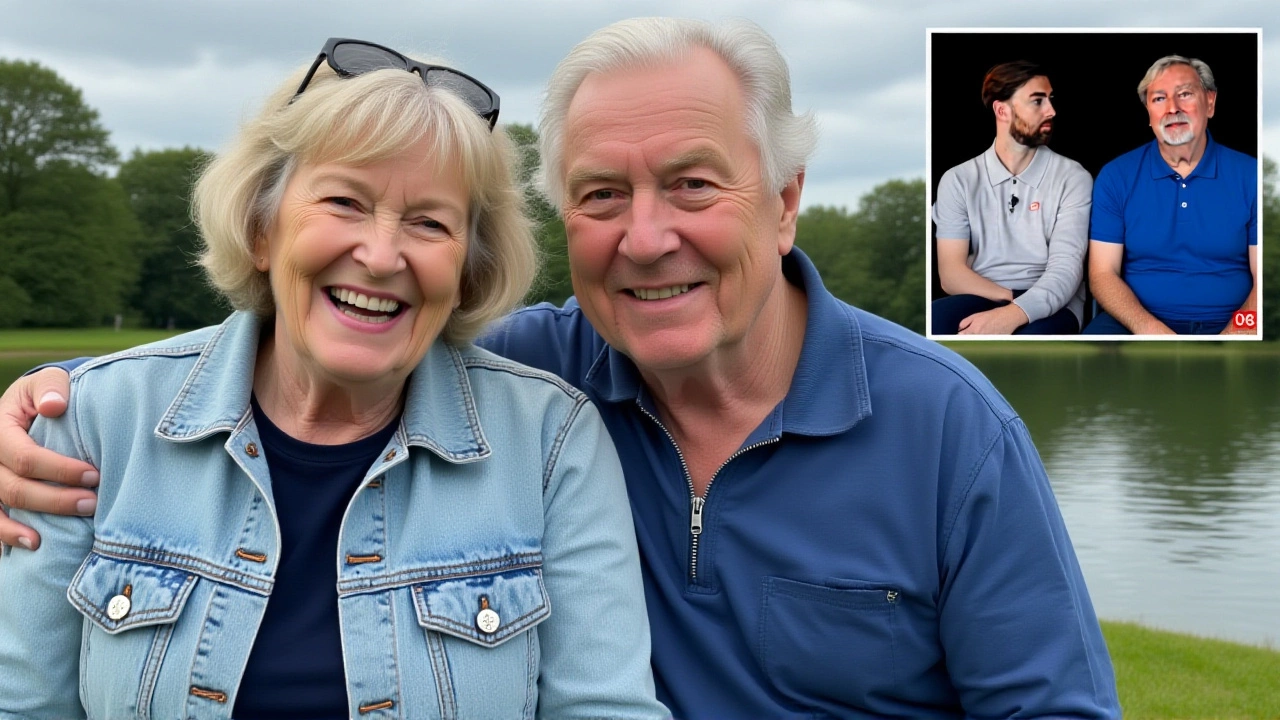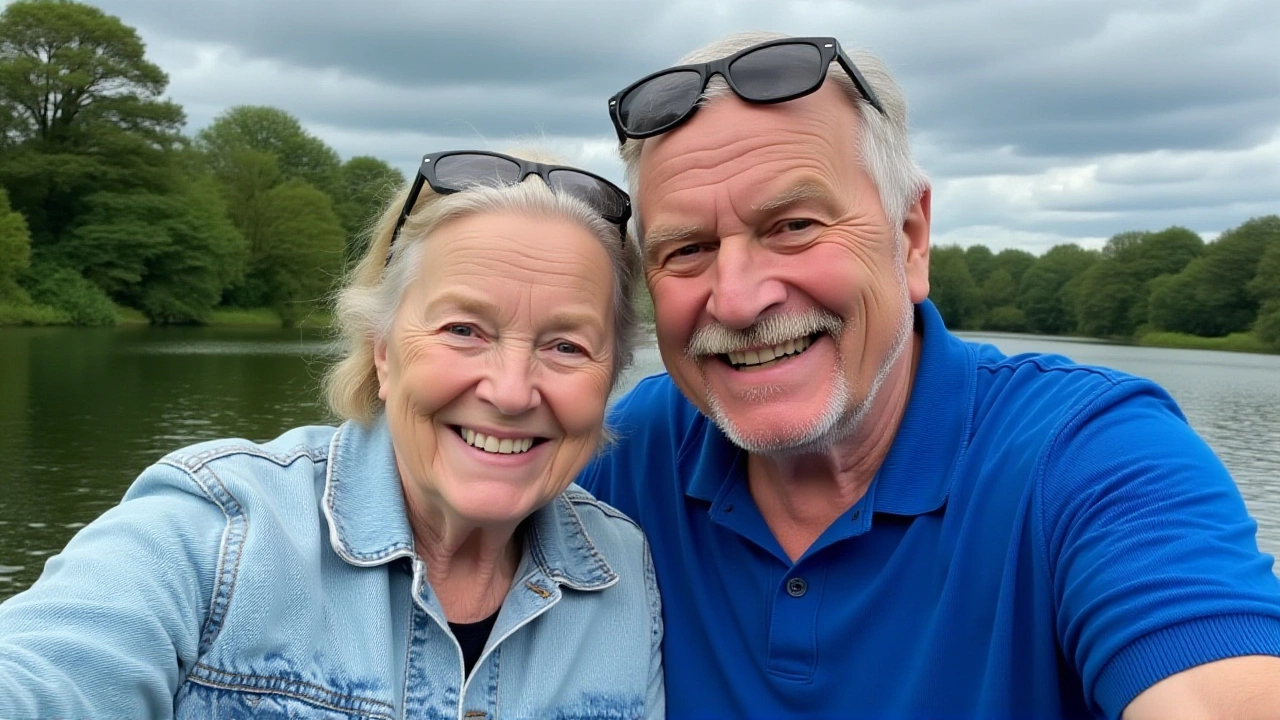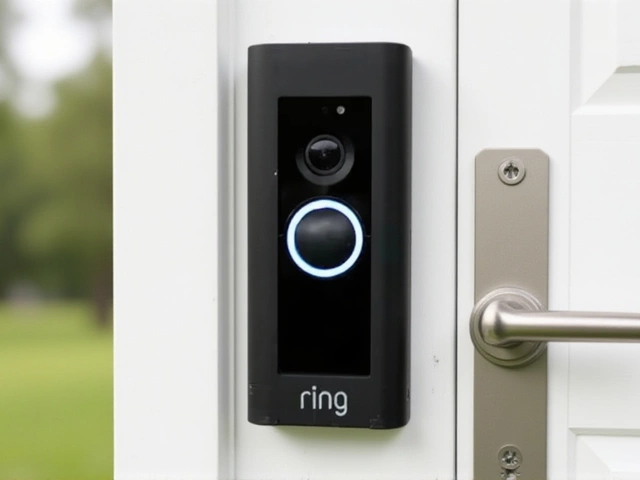When Pauline Quirke MBE, the beloved British actress best known for playing Sharon Theodopolopodous in Birds of a Feather, went public with her dementia diagnosis on January 21, 2025, she didn’t just share a personal struggle—she ignited a national conversation about brain health. Her husband, Steve Sheen, who’s been married to her since 1996, made the announcement with quiet dignity, revealing that while Pauline was diagnosed in 2021, the couple had waited until now to speak out. The news, shared through Alzheimer's Research UK, came with a promise: the family would become ambassadors for the charity, turning their private pain into public purpose.
Why Now? A Family’s Courageous Choice
It’s not easy to step out of the spotlight when your identity has been built on performance, humor, and visibility. But Pauline Quirke’s decision wasn’t about attention—it was about clarity. "We kindly request privacy and understanding for Pauline and our family during this difficult period," Steve Sheen said. "Pauline just wants to spend time with her family, children and grandchildren." That simplicity cut through the noise. In a world obsessed with instant updates, their restraint spoke volumes.
The timing mattered. Just days before, the BBC soap EastEnders had aired a storyline where character Nigel Bates, played by Paul Bradley, received a young-onset dementia diagnosis. Then came Pauline’s announcement. Suddenly, dementia wasn’t just a plot point—it was a real face, a real voice, a real MBE recipient who’d spent decades making Britain laugh. The contrast was powerful: fiction raising awareness, reality demanding action.
Young-Onset Dementia: A Hidden Crisis
Pauline Quirke is 65. But dementia diagnosed before 65 is classified as young-onset dementia—and over 70,800 people in the UK live with it. That’s not an old person’s disease. It’s a parent’s disease. A spouse’s disease. A child’s disease. Alzheimer's Society confirmed that one in three people born in the UK today will develop dementia in their lifetime. If nothing changes, one in two will be directly affected—either by diagnosis, caregiving, or both.
Simon Wheeler, a dementia expert at Alzheimer's Society, explained that dementia isn’t one condition. It’s a cluster of symptoms caused by diseases like Alzheimer’s, vascular dementia, or frontotemporal dementia. And the early signs? Often mistaken for stress, fatigue, or depression. Memory lapses. Confusion in familiar places. Trouble managing finances. For Pauline, the diagnosis came after years of subtle changes she and Steve quietly navigated.

Charlie Quirke’s Trek For A Cure
The most moving response came from her son, Charlie Quirke. "My mum has always been my best friend," he said. "Dementia hasn’t changed that. She’s happy, content and loving for as much of the day as she can give us. But it’s a progressive illness—and currently, there is no cure. So every day is different for all of us. That’s what makes it so difficult. I wouldn’t wish it on anyone."
On November 17, 2025, Charlie will begin a five-day trek across the UK for Alzheimer's Research UK. "I’m doing this because I need to feel like I’m doing something," he told PA Media. "Not just grieving what’s being lost, but fighting for what might still be saved."
Hilary Evans-Newton, Chief Executive of Alzheimer's Research UK, called the family’s involvement "profoundly impactful." "When someone like Pauline speaks up, it removes stigma. It gives permission to others to say, ‘Me too.’"
Legacy Beyond the Screen
Pauline Quirke didn’t just act. She built. Her Pauline Quirke Academy of Performing Arts (PQA), founded in 2005, has trained thousands of young performers across the UK. She received her MBE in the late Queen’s final Birthday Honours—not just for acting, but for her work with youth and charitable causes. Now, that legacy is evolving. PQA staff and students have rallied around her, sending messages of love. "We are deeply grateful for the support of her peers, the public and the dedicated staff and Principals at PQA," Steve Sheen wrote.
Her career—spanning Birds of a Feather since 1989, Shine On Harvey Moon, and You Must Be Joking!—was filled with warmth and wit. But her greatest role now? A voice for the 900,000 people living with dementia in the UK.

What’s Next?
The family’s next steps are clear: advocacy, not appearances. No more filming. No more public events. Just quiet moments with grandchildren, and loud moments of awareness. The trek in November will be televised, with proceeds funding early diagnosis trials and caregiver support programs. Meanwhile, Alzheimer's Research UK is accelerating its £100 million research initiative, targeting biomarkers that could detect dementia a decade before symptoms appear.
Pauline Quirke’s diagnosis was made in 2021. But the impact? It’s only just beginning.
Frequently Asked Questions
What is young-onset dementia, and how is it different from typical dementia?
Young-onset dementia refers to dementia diagnosed before age 65. While symptoms resemble late-onset dementia—memory loss, confusion, personality changes—it often strikes people in their 40s or 50s, disrupting careers, parenting, and financial stability. Unlike typical dementia, it’s frequently misdiagnosed as stress or depression. Over 70,800 people in the UK live with it, yet public awareness remains low.
Why did Pauline Quirke wait until 2025 to go public with her 2021 diagnosis?
Pauline and Steve Sheen waited to ensure she had time to adjust privately and for the family to prepare emotionally. They also wanted to avoid media frenzy during the early stages. Their decision to speak out in January 2025 coincided with heightened public attention due to an EastEnders storyline, giving them a platform to amplify awareness without exploiting their vulnerability.
How is Charlie Quirke’s trek helping dementia research?
Charlie Quirke’s five-day trek, launching November 17, 2025, raises funds for Alzheimer’s Research UK’s early detection programs. The charity uses donations to support clinical trials testing blood biomarkers that could identify dementia up to 10 years before symptoms appear. Every £50 raised funds a day of lab research. Charlie’s goal is to raise £50,000, which could support three months of critical work.
What support is available for families caring for someone with dementia?
Alzheimer’s Society offers free 24/7 helplines, local support groups, and dementia-friendly community programs. They also provide tailored guides for caregivers managing daily routines, communication strategies, and legal planning. For young-onset cases, specialized services help with employment retention, childcare adjustments, and mental health support for partners and children.
Can dementia be prevented?
While there’s no guaranteed prevention, research shows that managing blood pressure, staying physically active, avoiding smoking, limiting alcohol, and maintaining social connections can reduce risk by up to 40%. Conditions like diabetes, obesity, and depression also increase vulnerability. Early diagnosis through blood tests—currently in trials—is key to slowing progression.
How can the public support Alzheimer’s Research UK?
Donations fund research into early detection and potential cures. The public can participate in fundraising events like Charlie Quirke’s trek, volunteer with local branches, or sign up for clinical trials. Even sharing stories like Pauline’s helps reduce stigma. Every £100 raised helps pay for one hour of lab research. The charity’s goal: a cure by 2035.





